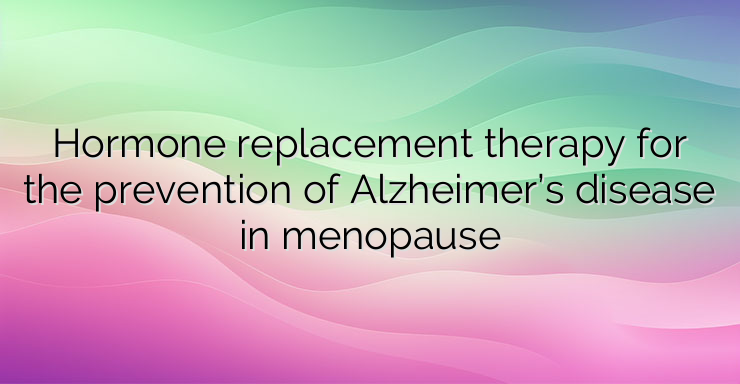Hormone replacement therapy could provide Alzheimer’s disease prevention among women at higher risk of developing the disease. This was shown by a study conducted by the University of East Anglia, Great Britain. This therapy has been found to provide both improved memory and mental capacity, as well as maintenance of brain volume in older age. These positive effects on cognitive functions are due to the APOE4 gene, which is a leading risk factor for developing Alzheimer’s disease. The significant benefits of hormone replacement therapy are manifested when the treatment is started earlier, during perimenopause – the period before entering menopause. The reasons for the higher incidence of Alzheimer’s in women are their longer life expectancy and the more common carrier of this gene among them. The focus of the study was to establish the effects of menopause and the impact of the genetic risk associated with carrying the APOE4 gene on cognitive capacity. The analysis used data from 1,178 participants in the European Alzheimer’s Prevention Initiative, whose primary goal was to track the brain health of female patients over time. Participants over the age of 50 and those who had not been diagnosed with dementia were included in the study. Observations have shown improved memory and larger brain volume in women carrying the APOE4 gene. This relationship was even more significant with early introduction of hormone replacement therapy – already in the period of perimenopause. The effect of this treatment is to improve the health of the brain to the extent that aging processes are slowed down and changes are prevented. Observations of the relationship between cognitive capacity and brain volume were made using nuclear magnetic resonance imaging. Intellectual ability and reduced brain volume have been found to be a key factor in an increased risk of dementia. Hormone replacement therapy ensures volume preservation of both the left and right entorhinal cortex, as well as the amygdala. These two structures are key to cognitive capacity. The entorhinal cortex, in turn, is one of the first areas in the brain to be affected in Alzheimer’s disease, regardless of age-related changes. It is damaged even before the hippocampus is affected. Carrying the APOE4 gene is associated with enhanced benefits of hormone replacement therapy, as it contributes to the preservation of brain volume. References: https://alzres.biomedcentral.com/articles/10.1186/s13195-022-01121-5


Leave a Reply